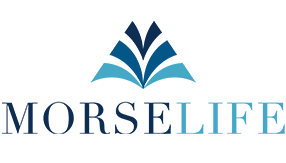MorseLife’s Visitation Guidelines
MorseLife’s Visitation Guidelines
Navigation
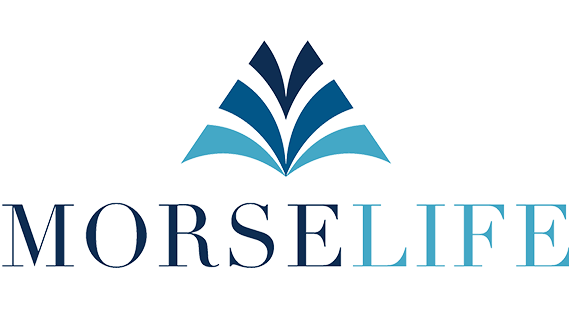
MorseLife Health System Facial Coverings Policy & Procedures for Joseph L. Morse Health Center, Tradition, MorseLife Memory Care Residence, and Resnick Assisted Living
Guidelines and Protocols
Title: Facial Coverings Policies and Procedures
Origination Date: 06/2023
Revision Date: 07/2023
Policy Statement:
In accordance with the Florida Statutes §408.824 and the standards set forth in the Florida Administrative Code 59AER23-1 and -2, Morselife Health System has adopted the following policy regarding the use of facial coverings for infection control by its residents, visitors, staff members and others coming into the facility.
Definitions:
Common Area – refers to areas in a health care setting where patients are not treated, diagnosed, or examined.
Employee – refers to any person under employment or contract of a health care setting, including health care practitioners, administrative staff, maintenance staff, aides, contractors, students, and volunteers.
Facial Covering – means a cloth or surgical face mask, a face shield, or any other facial covering that covers the mouth and nose.
Patient – refers to a person receiving services from a health care practitioner or health care provider. (For the purposes of this policy, the term “residents” is used to indicate persons residing in the skilled nursing.)
Sterile Areas – refers to locations where surgery is conducted or where procedures that require aseptic techniques are performed.
Sterile Procedure – refers to aseptic procedures with the goal of minimizing the risk of microbial contamination to reduce the rate of invasive or surgical site infection
Visitor – refers to any person in a health care setting who is not an employee or patient (resident) of the health care setting.
Policy Interpretation and Implementation:
- MorseLife Health System does not require the universal use of facial coverings by persons in order to gain access to, entry upon, service from, or admission to the facility or otherwise discriminate against persons based on their refusal to wear a facial covering.
- Persons who freely choose to wear facial coverings while within MorseLife Health System may do so based upon their personal preference.
- Facial coverings remain an important intervention in preventing respiratory bacterial and viral transmission. MorseLife Health System and its health care practitioners may choose to require a resident to wear a facial covering only when the resident is in a common area of the facility and is exhibiting signs or symptoms of or has been diagnosed as having an infectious disease that can be spread through droplet or airborne transmission.
- MorseLife Health System and its health care practitioners may choose to require a visitor to wear a facial covering only when the visitor is:
-
- exhibiting signs or symptoms of or has a diagnosed infectious disease that can be spread through droplet or airborne transmission.
- in sterile areas of the facility or an area where sterile procedures are being performed.
- in a resident or clinical room with a resident who is exhibiting signs or symptoms of or has a diagnosed infectious disease that can be spread through droplet or airborne transmission; or
- visiting a resident whose treating health care practitioner has diagnosed the patient with or confirmed a condition affecting the immune system in a manner which is known to increase risk of transmission of an infection from employees without signs or symptoms of infection to a patient and whose treating practitioner has determined that the use of facial coverings is necessary to the resident’s safety.
Opt-out Requirements of 59AER23-2 when facial coverings are being required.
- MorseLife Health System will follow the regulations of 59AER23-2 for persons requesting to opt-out of wearing a facial covering.
- MorseLife Health System and its health care practitioners who choose to require a facial covering for any resident will provide for the opting-out of wearing a facial covering that is in accordance with the Florida Patient Bill of Rights and Responsibilities, section 381.026, F.S., including the following:
- 381.026 (5) Responsibilities of Patients. – Each patient of a health care provider or health care facility shall respect the health care provider’s and health care facility’s right to expect behavior on the part of patients which, considering the nature of their illness, is reasonable and responsible.
- 381.026 (4)(b)3. Rights Of Patients – A patient has the right to be given by his or her health care provider information concerning diagnosis, planned course of treatment, alternatives, risks, and prognosis, unless it is medically inadvisable or impossible to give this information to the patient, in which case the information must be given to the patient’s guardian, or a person designated as the patient’s representative. A patient has the right to refuse this information.
- 381.026 (4)(b)4. Rights Of Patients – A patient has the right to refuse any treatment based on information required by this paragraph, except as otherwise provided by law. The responsible provider shall document any such refusal.
- 381.026 (4)(b)5. Rights Of Patients – A patient in a health care facility has the right to know what facility rules and regulations apply to patient conduct.
- MorseLife Health System and its health care practitioners who choose to require a facial covering for any visitor will provide for the opting-out of wearing a facial covering when requested by the visitor if an alternative method of infection control or infectious disease prevention is available based upon the individual resident’s and visitor’s circumstance.
- As a health care provider, MorseLife Health System will allow an employee to opt out of facial covering requirements unless an employee are:
- Conducting sterile procedures,
- Working in a sterile area,
- Working with a patient whose treating health care practitioner has diagnosed the patient with or confirmed a condition affecting the immune system in a manner which is known to increase risk of transmission of an infection from employees without signs or symptoms of infection to a patient and whose treating practitioner has determined that the use of facial coverings is necessary for the patient’s safety,
- With a patient on droplet or airborne isolation, or
- Engaging in non-clinical potentially hazardous activities that require facial coverings to prevent physical injury or harm in accordance with industry standards.
References
Florida Administrative Code 59AER23-1 and 2 Definitions and Standards for the Appropriate Use of Facial Coverings for Infection Control
Florida Statutes §408.824
Chapter 2023-43, Laws of Florida

Joseph L. Morse Health Center
Guidelines and Protocols
Title: Visitation policy
Origination Date: 06/2020
Revision Date: 03/2022, 2/6/2023, 7/12/2023
Purpose: Describe visitation guidelines
Definitions:
“Essential caregiver” – A resident, client, or patient may designate a visitor who is a family member, friend, guardian, or other individual as an essential caregiver. An essential caregiver is not required to provide necessary care to a resident, client, or patient of a provider, and providers may not require an essential caregiver to provide such care. The essential caregiver can visit at least 2 hours daily in addition to other visitors.
“Up to Date” – means a person has received all recommended COVID-19 vaccines, including any booster dose(s) when eligible.
Policy:
MorseLife will allow visitation of all visitors and non-essential health care personnel and can be conducted through different means based on the facility’s structure and residents’ needs, such as in resident rooms, dedicated visitation spaces, and outdoors. The visitation will be person-centered, consider the resident’s physical, mental, and psychosocial well-being, and support their quality of life. Exceptions will be in accordance with current CMS directives and CDC recommendations, or as directed by state government (whichever is more stringent).
Guidelines:
-
- The Infection Preventionist will monitor the status of the COVID-19 situation through the CDC website and local/state health department, and will keep facility leadership informed of current directives/recommendations and the need for restricting visitation if indicated.
- The facility will communicate this visitation policy through MorseLife website and Posted sign.
- The core principles of COVID-19 infection prevention will be adhered to and as follows:
- MorseLife will provide guidance (e.g., posted signs at entrances) about recommended actions for visitors who have a positive viral test for COVID-19, symptoms of COVID-19, or have had close contact with someone with COVID-19. Visitors with confirmed COVID-19 infection or compatible symptoms should defer non-urgent in-person visitation until they meet CDC criteria for healthcare settings to end isolation. For visitors who have had close contact with someone with COVID-19 infection, it is safest to defer non-urgent in-person visitation until 10 days after their close contact if they meet criteria described in CDC healthcare guidance (e.g., cannot wear source control).
- During outbreak, visitors will be made aware about their potential to be exposed to COVID-19 in the facility.
- Resident and the visitors are encouraged to perform Hand hygiene, using an alcohol-based hand rub, before and after contact.
- Instructional signage throughout the facility regarding infection control precautions, and other applicable facility practices will be Posted.
- Appropriate use of face covering or mask: MorseLife will no longer mandate residents/patients, visitors, or employees to wear a facemask, in the common area of the nursing home and assisted living facilities. Facemask will only be worn when entering a Transmission Based Precaution room; Exhibiting signs/symptoms of or has a diagnosed infectious disease that can be spread through droplet or airborne transmission. If a resident/patient, visitor, or staff member chooses to wear a facemask; they may do so.
- Outdoor visitation will be conducted based on the resident and visitor’s preference.
- Visits will be held outdoors whenever practicable and will be facilitated routinely barring weather conditions or a resident’s health status.
- The facility will have an accessible and safe outdoor space (designate space) in which to conduct outdoor visitation.
- All appropriate infection control and prevention practices will be followed when conducting outdoor visitations.
- Indoor visitation will be conducted in a manner that reduces the risk of COVID-19 transmission based on the following guidelines:
- The facility will allow indoor visitation at all times and for all residents and will not limit the frequency and length of visits, the number of visitors, or require advance scheduling of visits.
- For residents who are on transmission-based precautions or quarantine, visits may occur in the resident’s room and the resident should wear a well-fitted facemask (if tolerated). Visitors will be made aware of the potential risk of visiting and precautions necessary in order to visit and should adhere to the core principles of infection prevention.
- When a new case of COVID-19 among staff or residents is identified, the facility will immediately begin an outbreak investigation and adhere to CMS regulations and guidance for COVID-19 testing, including expanded screening testing, testing of individuals with symptoms and outbreak testing.
- Visits will be allowed during outbreak investigations, but visitors will be made aware of the potential risk of visiting during the outbreak investigation and adhere to the core principles of infection prevention. If visiting, during this time, residents and their visitors should wear face coverings or masks during the visits, regardless of vaccination status, and visits should ideally occur in the resident’s room. The facility may contact their local health authorities for guidance or direction on how to structure their visitation to reduce the risk of COVID-19 transmission during an outbreak investigation.
- Visits required under the federal disability rights laws and protection and advocacy (P & A) programs will be allowed at all times. If the resident is in transmission-based precautions or quarantine, the resident and P & A representative should be made aware of the potential risk of visiting and the visit should take place in the resident’s room.
- Ombudsmen who plan to visit a resident in transmission-based precautions or quarantine, will be made aware of the potential risk of visiting and the visit should take place in the resident’s room.
- Alternative communication methods (phone or other technology) may be used if the resident or Ombudsman program requests it in lieu of an in-person visit.
References:
Centers for Disease Control and Prevention. Interim Infection Prevention and Control Recommendations for Healthcare Personnel During the Coronavirus Disease 2019 (COVID-19) Pandemic. Located at: https://www.cdc.gov/coronavirus/2019-ncov/hcp/infection-control-recommendations.html. Accessed February 2, 2022.
Centers for Disease Control and Prevention. Interim Infection Prevention and Control Recommendations to Prevent SARS-CoV-2 Spread in Nursing Homes. Located at: https://www.cdc.gov/coronavirus/2019-ncov/hcp/long-term-care.html#new-admissions. Accessed February 2, 2022.
Centers for Medicare and Medicaid Services. Nursing Home Visitation Frequently Asked Questions (FAQs). March 10, 2022.
Centers for Medicare & Medicaid Services. (March 10, 2022) QSO-20-39-NH: Nursing Home Visitation – COVID-19 (REVISED).
State of Florida senate bill (2022, April 5). Retrieved May 4, 2022, from https://www.flsenate.gov/Session/Bill/2022/988/BillText/er/HTML
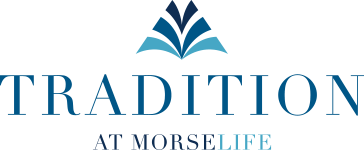
Tradition
Guidelines and Protocols
Title: Visitation & Access policy
Origination Date: 05/2022
Revision Date: 2/17/2023
Purpose:
MorseLife Health System is instituting the following visitation policies at Tradition of the Palm Beaches for the safety and well-being of all the residents.
Plan:
- All visitors may access Tradition through the gatehouse located at 4920 Loring Drive. The guardhouse is manned 24/7.
- Tradition of the Palm Beaches has open in person visitation which is available 9:00 a.m. to 9:00 p.m. Overnight visitation is allowed per resident contract for up to 14 days so long as front desk is notified by resident.
- Resident has right to have visitors stay as long as they want.
- Resident has right to have as many visitors at a time as they want.
- Consensual physical contact is allowed between resident and visitor.
- All visitors must show a valid ID and at the security gate. Visitors must be approved by residents or responsible parties by utilizing the gate call system.
- All visitors will receive facility required PPE from the reception desk or nurses station.
- All visitors must sign in the visitor log at the reception desk.
- Visitors will not be required to provide any proof of immunization or vaccination status of any kind.
- Visitors with signs and symptoms of a transmissible infection will be educated and asked to defer visitation until they are no longer potentially infectious according to CDC guidelines, and/or local health department recommendations.
- Signs are posted educating visitors on infection control practices according to CDC guidelines at the main entrance and reception desk.
- Nurse floor supervisors will be responsible for ensuring staff adhere to policies and procedures.
- Resident has the right to receive the visitors whom he or she designates, including but not limited to a spouse, domestic partner, another family member, or a friend.
- Disruptive persons will be denied access into the facility.
- Resident has the right to deny, refuse or withdraw consent regarding visitations to any family member, any other individual or any entity.
- Reasonable clinical and safety restrictions may be exercised by facility as applicable to protect the security of other facilities/residents/and staff, i.e., medical reasons, criminal acts, etc.
- Alternate visiting areas are available for visitors to minimize disruptions to other residents.
- Facility will Deny access or provide supervised visitation to individuals who have a history of bringing illegal substances into the facility which places residents’ health and safety at risk.
- All visitors can enjoy full and equal visitation privileges consistent with patient/resident preferences.
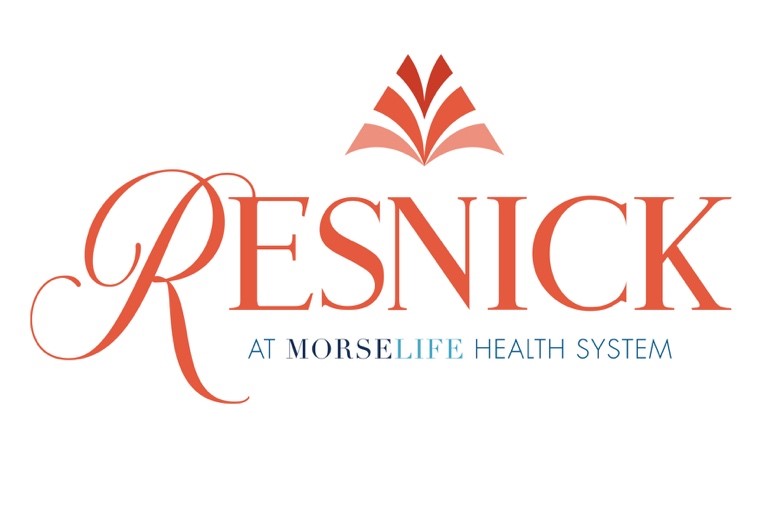
Guidelines and Protocols
Title: Resnick ALF Visitation policy
Origination Date: 06/2020
Revision Date: 9/20/2020, 5/3/2022, 2/17/2023
Purpose:
MorseLife Health System is instituting the following visitation policies at MorseLife Memory Care Residence for the safety and well-being of all the residents. This includes both the Goldsmith and Resnick buildings.
Definitions:
“Essential caregiver” – A resident, client, or patient may designate a visitor who is a family member, friend, guardian, or other individual as an essential caregiver. An essential caregiver is not required to provide necessary care to a resident, client, or patient of a provider, and providers may not require an essential caregiver to provide such care. The essential caregiver can visit at least 2 hours daily in addition to other visitors.
“Up to Date” – means a person has received all recommended COVID-19 vaccines, including any booster dose(s) when eligible.
Guidelines:
- All visitors may access MorseLife through the gatehouse located at 4847 David S Mack Drive. The guardhouse is manned 24/7.
- MorseLife Memory Care Residence has open in person visitation which is available 9:00 a.m. to 9:00 p.m. No overnight visitation is allowed per resident contract unless a resident is eminent, and administration has been notified.
- Visitation duration will not be limited to any length within visitation hours.
- Resident has right to have as many visitors at a time as they want within visitation hours.
- Consensual physical contact is allowed between resident and visitor.
- All visitors must show a valid ID and at the security gate.
- All visitors will receive facility required PPE from the reception desk.
- All visitors must sign in the visitor log at the reception desk.
- Visitors will not be required to provide any proof of immunization or vaccination status of any kind.
- Visitors with signs and symptoms of a transmissible infection will be educated and asked to defer visitation until they are no longer potentially infectious according to CDC guidelines, and/or local health department recommendations.
- Signs are posted educating visitors on infection control practices according to CDC guidelines at the main entrance and reception desk.
- Nurse floor supervisors will be responsible for ensuring staff adhere to policies and procedures.
- Resident has the right to receive the visitors whom he or she designates, including but not limited to a spouse, domestic partner, another family member, or a friend.
- Disruptive persons will be denied access into the facility.
- Resident has the right to deny, refuse or withdraw consent regarding visitations to any family member, any other individual or any entity.
- Reasonable clinical and safety restrictions may be exercised by facility as applicable to protect the security of other facilities/residents/and staff, i.e., medical reasons, criminal acts, etc.
- Alternate visiting areas are available for visitors to minimize disruptions to other residents.
- Facility will deny access or provide supervised visitation to individuals who have a history of bringing illegal substances into the facility which places residents’ health and safety at risk.
- All visitors can enjoy full and equal visitation privileges consistent with patient/resident preferences.
References:
Centers for Disease Control and Prevention. Interim Infection Prevention and Control Recommendations for Healthcare Personnel During the Coronavirus Disease 2019 (COVID-19) Pandemic. Located at: https://www.cdc.gov/coronavirus/2019-ncov/hcp/infection-control-recommendations.html. Accessed February 2, 2022.
Centers for Disease Control and Prevention. Interim Infection Prevention and Control Recommendations to Prevent SARS-CoV-2 Spread in Nursing Homes. Located at: https://www.cdc.gov/coronavirus/2019-ncov/hcp/long-term-care.html#new-admissions. Accessed February 2, 2022.
Centers for Medicare and Medicaid Services. Nursing Home Visitation Frequently Asked Questions (FAQs). March 10, 2022.
Centers for Medicare & Medicaid Services. (March 10, 2022) QSO-20-39-NH: Nursing Home Visitation – COVID-19 (REVISED).
State of Florida senate bill (2022, April 5). Retrieved May 4, 2022, from https://www.flsenate.gov/Session/Bill/2022/988/BillText/er/HTML
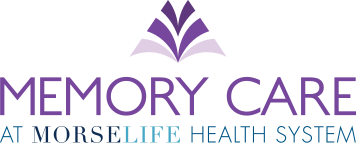
Guidelines and Protocols
Title: Memory Care ALF Visitation policy
Origination Date: 06/2020
Revision Date: 9/20/2020, 5/3/2022. 2/17/2023
Purpose:
MorseLife Health System is instituting the following visitation policies at MorseLife Memory Care Residence for the safety and well-being of all the residents. This includes both the Goldsmith and Resnick buildings.
Definitions:
“Essential caregiver” – A resident, client, or patient may designate a visitor who is a family member, friend, guardian, or other individual as an essential caregiver. An essential caregiver is not required to provide necessary care to a resident, client, or patient of a provider, and providers may not require an essential caregiver to provide such care. The essential caregiver can visit at least 2 hours daily in addition to other visitors.
“Up to Date” – means a person has received all recommended COVID-19 vaccines, including any booster dose(s) when eligible.
Guidelines:
- All visitors may access MorseLife through the gatehouse located at 4847 David S Mack Drive. The guardhouse is manned 24/7.
- MorseLife Memory Care Residence has open in person visitation which is available 9:00 a.m. to 9:00 p.m. No overnight visitation is allowed per resident contract unless a resident is eminent, and administration has been notified.
- Visitation duration will not be limited to any length within visitation hours.
- Resident has right to have as many visitors at a time as they want within visitation hours.
- Consensual physical contact is allowed between resident and visitor.
- All visitors must show a valid ID and at the security gate.
- All visitors will receive facility required PPE from the reception desk.
- All visitors must sign in the visitor log at the reception desk.
- Visitors will not be required to provide any proof of immunization or vaccination status of any kind.
- Visitors with signs and symptoms of a transmissible infection will be educated and asked to defer visitation until they are no longer potentially infectious according to CDC guidelines, and/or local health department recommendations.
- Signs are posted educating visitors on infection control practices according to CDC guidelines at the main entrance and reception desk.
- Nurse floor supervisors will be responsible for ensuring staff adhere to policies and procedures.
- Resident has the right to receive the visitors whom he or she designates, including but not limited to a spouse, domestic partner, another family member, or a friend.
- Disruptive persons will be denied access into the facility.
- Resident has the right to deny, refuse or withdraw consent regarding visitations to any family member, any other individual or any entity.
- Reasonable clinical and safety restrictions may be exercised by facility as applicable to protect the security of other facilities/residents/and staff, i.e., medical reasons, criminal acts, etc.
- Alternate visiting areas are available for visitors to minimize disruptions to other residents.
- Facility will deny access or provide supervised visitation to individuals who have a history of bringing illegal substances into the facility which places residents’ health and safety at risk.
- All visitors can enjoy full and equal visitation privileges consistent with patient/resident preferences.
References:
Centers for Disease Control and Prevention. Interim Infection Prevention and Control Recommendations for Healthcare Personnel During the Coronavirus Disease 2019 (COVID-19) Pandemic. Located at: https://www.cdc.gov/coronavirus/2019-ncov/hcp/infection-control-recommendations.html. Accessed February 2, 2022.
Centers for Disease Control and Prevention. Interim Infection Prevention and Control Recommendations to Prevent SARS-CoV-2 Spread in Nursing Homes. Located at: https://www.cdc.gov/coronavirus/2019-ncov/hcp/long-term-care.html#new-admissions. Accessed February 2, 2022.
Centers for Medicare and Medicaid Services. Nursing Home Visitation Frequently Asked Questions (FAQs). March 10, 2022.
Centers for Medicare & Medicaid Services. (March 10, 2022) QSO-20-39-NH: Nursing Home Visitation – COVID-19 (REVISED).
State of Florida senate bill (2022, April 5). Retrieved May 4, 2022, from https://www.flsenate.gov/Session/Bill/2022/988/BillText/er/HTML
